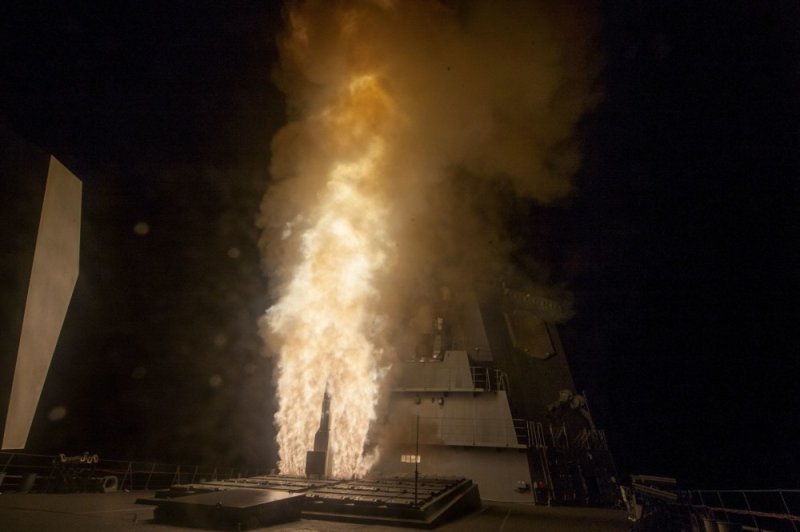1 of 2 | JS ATAGO (DDG-177) successfully completed an Aegis Ballistic Missile Defense (BMD) intercept flight test off the coast of Kauai, Hawaii, bringing BMD capability to the Japanese fleet. Photo courtesy of the Missile Defense Agency. (PRNewsfoto/Lockheed Martin)
Oct. 31 (UPI) -- Lockheed Martin's Rotary and Mission Systems have received a contract from the U.S. Navy to build and integrate combat systems into South Korean naval warships.
Under the terms of the $366 million cost-plus-incentive-fee contract, the companies will install, test and delivery of the Aegis Combat System K2 baselines for three KDX-III destroyers.
The KDX destroyers have another combat system, the Samsung Thales Naval Shield Integrated Combat Management System, which allows the ships to connect with any non-U.S. weapons systems.
Rotary and Mission Systems will also deliver program management, system engineering and computer program development support, along with ship integration and testing; technical manuals and planned maintenance system documentation.
The Aegis Combat System has carried out more than 3,800 missile launches at sea and supported deployments ranging from six to 10 months, according to Lockheed. The system can engage in simultaneous attacks from air, ballistic missile and surface threats.
To detect threats, the Aegis uses an SPY-1multifunctional phase radar, with four antennas to cover a 360-degree area.
The Aegis Combat System also protects naval ships in Australia, Japan, Norway, Spain and the United States, but the South Korean ships are the "largest destroyers to carry the Aegis Combat System," according to Lockheed.
The work will be performed in New Jersey, Washington, D.C., and South Korea.
The Navy will obligate $112 million at the time of the award, and that amount will not expire at the end of the current fiscal year.
Work is expected to be completed by July 2026.















